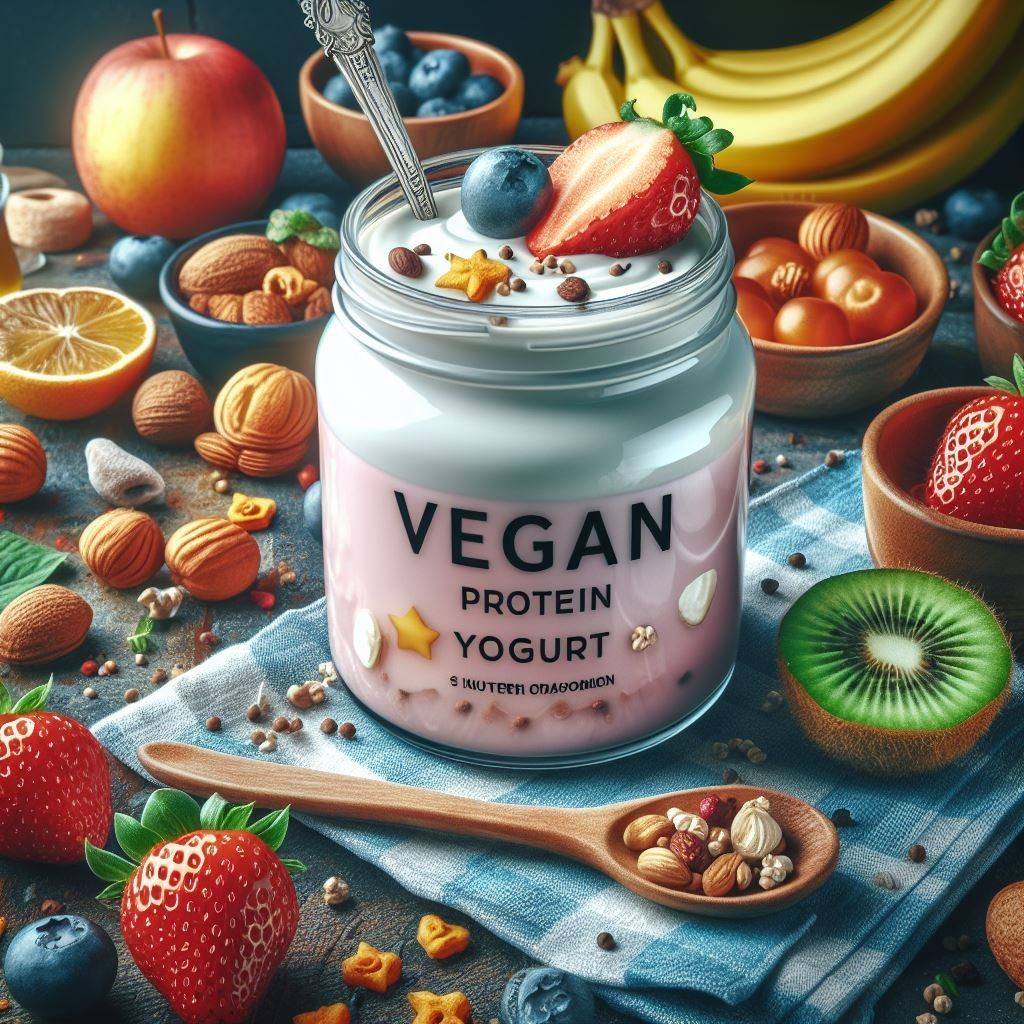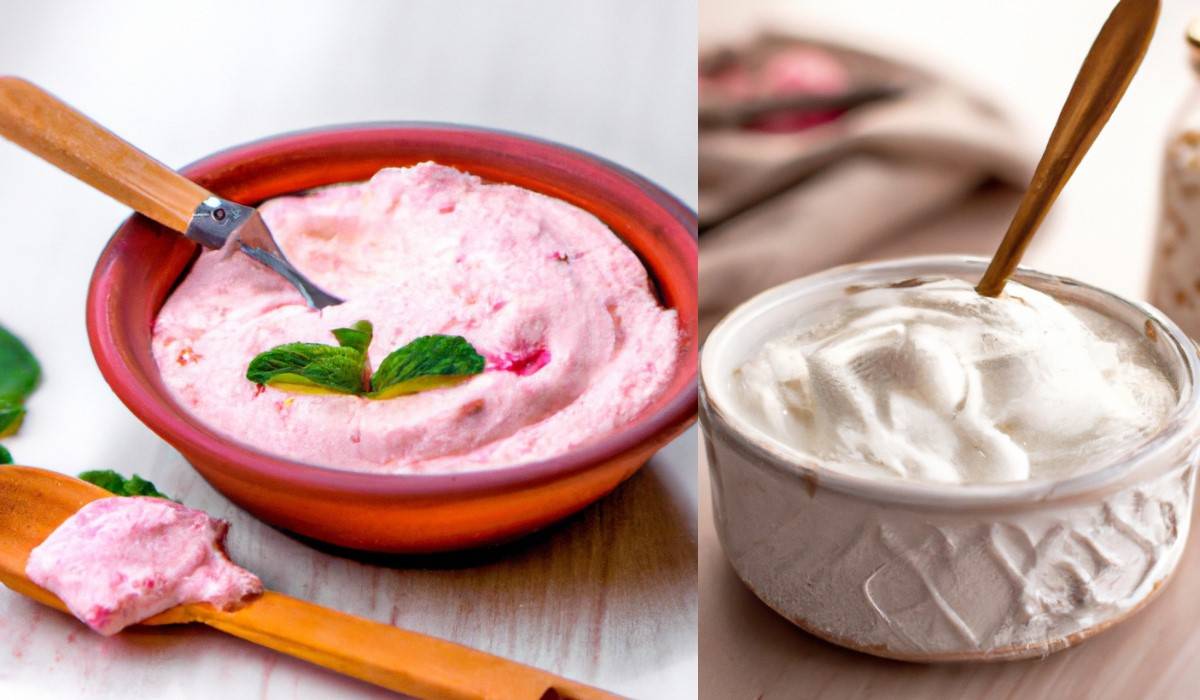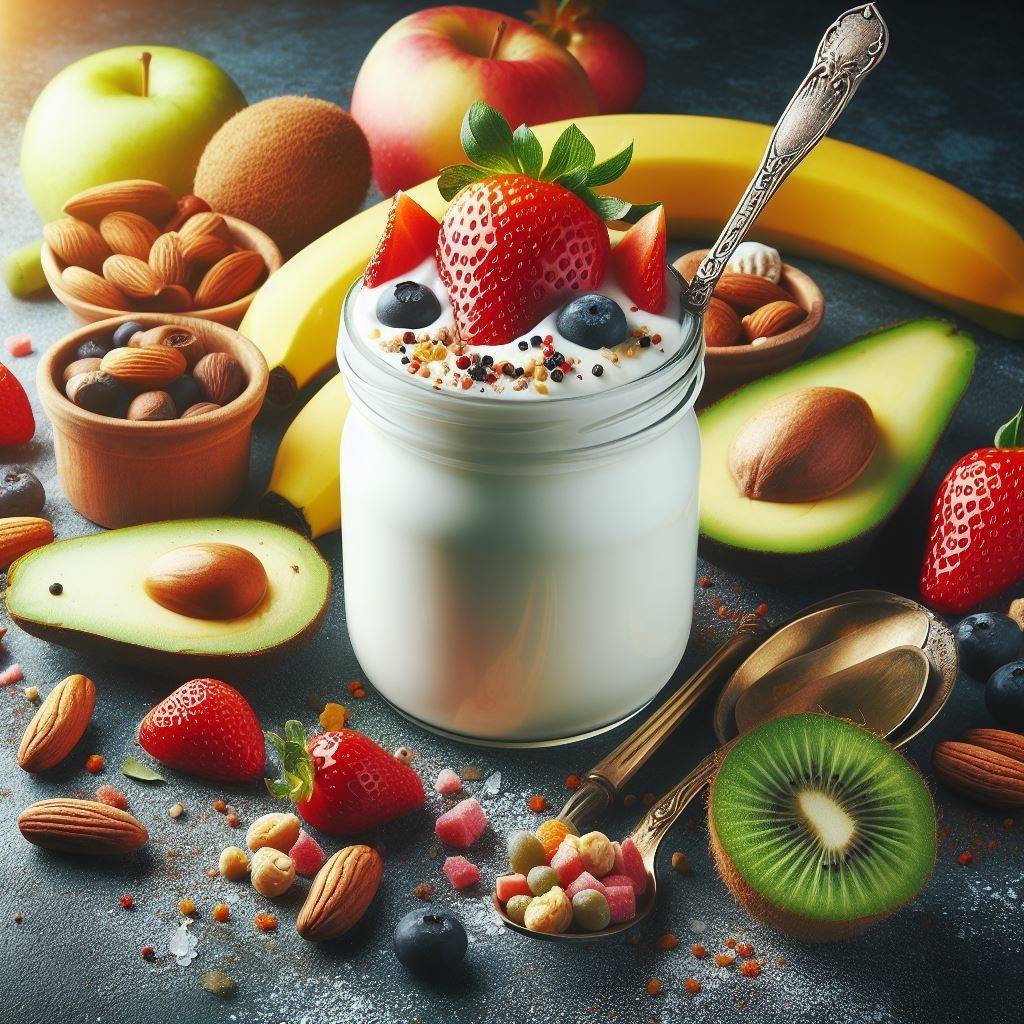Go Greek Without the Dairy: The New World of Vegan Protein Yogurt
Unlock the magic of Vegan Protein Yogurt – a delicious journey into plant-powered nutrition. Discover cruelty-free delight for a healthier, happier you.
Key Takeaways about Vegan Protein Yogurt:
| Benefits | Drawbacks | Best Brands |
| Excellent source of protein and nutrition | It can be more expensive than dairy | Kite Hill, Forager Project, Silk |
| Lactose-free and dairy-free | Texture and taste vary by brand | |
| Good for weight loss and muscle gain | Some less protein than dairy yogurt | |
| May reduce inflammation |
Vegan protein yogurt has exploded in popularity over the past few years as more people discover the delicious side of plant power. This creamy, protein-packed dairy alternative delivers a nutritious punch and a smooth, satisfying texture.
But is vegan yogurt all it’s cracked up to be regarding protein, taste, and nutrition compared to traditional dairy yogurt? Let’s analyze the pros, cons, differences, and best brands of vegan protein yogurt.
What is Vegan Protein Yogurt?

Vegan protein yogurt is a non-dairy yogurt alternative made from plant-based ingredients like soy, almond, coconut, or cashew. It is lactose-free, making it safe for those with dairy allergies.
It often contains added protein from sources like peas or brown rice protein. This gives it a nutrition boost over regular non-dairy yogurts.
Vegan protein yogurt aims to mimic the thick, creamy texture of Greek yogurt. But it is made without any animal products.
This tasty alternative has become popular for its high protein content and dairy-free ingredients:
- Excellent source of protein
- Packed with probiotics
- Non-dairy
- Lactose-free
- Plant-based
Now let’s analyze how vegan protein yogurt stacks up against regular dairy yogurt.
Vegan Protein Yogurt Vs Dairy Yogurt
So how does plant-powered vegan protein yogurt compare when it goes head-to-head with dairy-based Greek yogurt? Here’s a breakdown:
Nutrition
- Protein: Both options provide an excellent source of protein. But soy or pea protein-enriched vegan yogurts can have slightly less than Greek yogurt per serving.
- Calories: Comparable calories ranges depending on brand and style.
- Carbs: Some vegan yogurts have added sugar, leading to higher carbs. But unsweetened has fewer carbs than dairy.
- Fiber and micronutrients: Vegan yogurt from soy, nuts, or seeds contains more.
- Probiotics: Both have live and active cultures with digestive benefits.
Taste
- Texture: Greek yogurt has that ultra-thick, creamy consistency. But some vegan yogurts mimic it well. Others can be thin.
- Flavor: Varies greatly by brand and ingredients. Some are extremely close to dairy while others taste “beany” or too sweet.
Health Benefits
- Allergies/intolerance: Vegan yogurt contains no lactose, casein, or dairy, making it safe for food sensitivities.
- Inflammation: Plant-based diets may lower inflammation linked to chronic disease
- Gut health: Both contain probiotics that support digestive and immune function.
- Weight loss/muscle gain: Excellent fit-friendly protein source without fat and calories from meat.
Those avoiding dairy for personal or health reasons can find a comparable nutritional substitute with vegan protein yogurt. It makes an excellent protein, probiotics, vitamins, and minerals source via plant-based ingredients.
The major drawbacks are that taste and protein levels can vary greatly by brand. And it tends to be more expensive than dairy yogurt.
Pros of Vegan Protein Yogurt
Vegan protein yogurt has some clear advantages over dairy:
- Lactose-free
Contains absolutely no lactose, making it safe for those with a dairy allergy or lactose intolerance
- No casein
The dairy protein casein, another common allergen,
- Less inflammation
Plant-based diets free of dairy may lower chronic inflammation
- Gut-friendly probiotics
When fermented, vegan yogurt still offers plenty of probiotics
- More fiber & nutrients
Made with whole foods like soy, nuts, and seeds instead of just milk
- Sustainable
It is a more eco-friendly choice compared to large-scale dairy operations
This yogurt swap checks all the boxes for those wanting to avoid dairy or follow a vegan diet.
Cons of Vegan Protein Yogurt
Despite some glowing advantages, this popular dairy-free swap isn’t perfect:
- Higher price
Typically, it costs more than Greek yogurt
- Taste/texture varies
Difficult to mimic thick creamy Greek yogurt texture and tang
- Added sugars
To mask non-dairy flavours, some have extra sweeteners
- Less protein
When boosted with soy or pea protein, it still has a few fewer grams per serving
- Beany taste
Some brands have an unpleasant aftertaste described as beany or bitter
- Grainy texture
Brands using nuts instead of soy/dairy can seem powder or grainy. While the cons come down to taste preferences and cost, they still leave room for improvement. However, companies continue enhancing formulas and techniques as the vegan yogurt market grows more competitive.
How do you choose the healthiest vegan protein yogurt?
Shopping for non-dairy yogurt brings a whole new world of unfamiliar plant-based options to consider. Here is what to look for to choosing a nutritious vegan protein yogurt that is both delicious and good for you:
-
Aim for at least 10g of protein per serving
Protein content can range from 5 grams to 16 grams per container. Go for 10 grams or higher to get a significant protein boost from your yogurt.
This amino acid powder helps build and repair muscle while keeping you full.
-
Seek out probiotics
These “good bacteria” offer enormous digestive and immunity benefits. They aid communication between your gut and immune system.
Check that the label lists probiotics in the ingredients, such as Lactobacillus or Bifid bacterium.
-
Avoid added sugars
Many non-dairy yogurts use sweeteners to mask bean, nut, or coconut flavours.
Look for less than 15 grams of sugar per serving. Or better yet, seek out unsweetened varieties, avoiding sugar substitutes like agave or cane syrup.
-
See what plants it uses
Soy yogurt offers a smooth texture and complete nutrition profile, similar to dairy. But almond, coconut, or cashew yogurts can provide healthy fats and creamy consistency.
Choose your preferred taste and nutrition by plant power, like soy for protein, coconut for healthy fats or almonds for calcium.
| Base | Nutrition Highlights |
| Soy yogurt | Protein, fiber, nutrients |
| Almond yogurt | Calcium, protein |
| Coconut yogurt | Healthy fats |
| Cashew yogurt | Zinc, magnesium |
-
Know what thickeners are used
Many vegan yogurts use natural starch thickeners to achieve creamy textures. choose tapioca starch, potato, or arrowroot instead of gum additives like guar gum.
-
Check certifications
Seek out vegan yogurt certified organic when possible to ensure quality ingredients. The Non-GMO Project verified indicates the plants used come from non-genetically modified sources.
Stick to these simple tips when evaluating plant-based yogurt options, and you’ll secure the creamiest, nutrient-packed pick possible.
How to Make Vegan Protein Yogurt?

Making vegan protein yogurt at home is easy and requires just a few ingredients. Here is a simple recipe that you can use to make your vegan protein yogurt:
Ingredients
- 1 can of full-fat coconut milk
- 1 tablespoon of agar agar powder
- 1 tablespoon of maple syrup
- 1 tablespoon of vanilla extract
- 1 tablespoon of vegan protein powder
Instructions
- In a small saucepan, whisk together the coconut milk and agar powder.
- Bring the mixture to a boil over medium heat, stirring constantly.
- Reduce the heat to low and simmer for 5 minutes, stirring occasionally.
- Remove the saucepan from the heat and stir in the maple syrup, vanilla extract, and vegan protein powder.
- Pour the mixture into a glass jar and let it cool to room temperature.
- Once the mixture has cooled, cover the jar with a lid and refrigerate for at least 2 hours.
- Serve and enjoy!
Vegan Protein Yogurt Recipes

Vegan protein yogurt is a versatile ingredient that can be used in various recipes. Here are a few ideas to get you started:
Vegan Protein Yogurt Parfait
- Layer vegan protein yogurt with fresh fruit and granola for a delicious and healthy breakfast.
Vegan Protein Yogurt Smoothie
- Blend vegan protein yogurt with your favourite fruits and vegetables for a tasty and nutritious smoothie.
Vegan Protein Yogurt Dip
- Mix vegan protein yogurt with herbs and spices for a delicious and healthy dip that is perfect for snacking.
Tips for Transitioning to Vegan Yogurt
Switching from a lifetime of creamy, tart dairy yogurt to plant-based takes an adjustment. Here are tips to change to vegan protein yogurt easier:
- Temper expectations on taste– Texture and tang won’t perfectly mirror the diary. But some brands like Kite Hill come extremely close.
- Sweeten it up If missing that sweet creaminess of sugary low-fat yogurts, mix in fresh fruit, maple syrup, vanilla, or cacao powder.
- Top it– Customize each bowl with nuts, seeds, granola, or fruit to mask any beany flavours.
- Sip it– Blended with banana or berries, plant-based yogurt makes nutrient-packed smoothies.
- Bake with it– Add moisture and binding properties to cakes, muffins, or quick breads.
With an open mind to accepting small taste differences, converting to vegan yogurt can feel completely doable ― especially given the upside of nutritional wins.
Plant-Based Yogurt: The Final Verdict
Vegan protein yogurt continues going mainstream thanks to creative formulas rivalling dairy thickness, tanginess, and taste. Nutrient-dense additions like soy or pea protein also help non-dairy compete pound-for-pound on nutrition compared to Greek yogurt.
Some trial and error come with finding one’s perfect plant-based yogurt match. But vegan yogurt delivers for those seeking dairy-free options or wanting to reap the inflammation benefits of a plant-based diet.
Just check labels for ample protein, limited sugars, probiotics, and natural thickeners. Then revel in luscious, guzzle-worthy goodness free of lactose, casein, and common allergens.
For plant versus cow for yogurt perfection ― consider this just the beginning of the nutritious possibilities to come.



